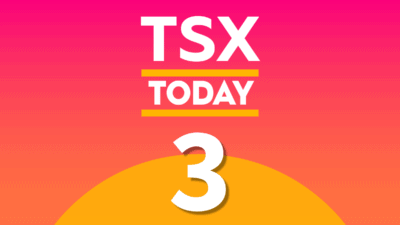If you feel the cost of living has jumped recently, you’re not alone. Corporations and governments across the world are also bracing for higher inflation in the second half of 2021. The economic reopening coupled with pent-up demand and relentless stimulus have already pushed the cost of raw materials to record highs.
Here’s what a bout of inflation could do to your portfolio and how you should prepare.
Inflation signals
This week, Bank of Canada Governor Tiff Macklem reiterated his team’s target of 2% inflation. However, it’s worth noting that this is average inflation. That means if inflation was below 2% in recent years, the central bank is okay with the rate being higher than 2% for a while.
According to the BoC, average inflation in 2020 was just 0.72% — which means the Macklem team is okay with much higher inflation this year. That seems to be happening already.
The price of lumber, oil, corn, soybeans, copper and several other commodities have spiked in recent months. Demand for travel and housing could push fuel costs and rents higher as the economy recovers. All this means ordinary Canadians should brace for higher living costs by next year.
It also means that investors need to reassess their positions.
Stocks that could be dented
Higher inflation should theoretically lead to higher interest rates. The BoC has already said that rates could rise in 2022. That’s sooner than expected. Higher interest rates may have a noticeable impact on the valuation of growth stocks that are unprofitable.
Tech stocks like Shopify are a good example. The stock trades at a price-to-earnings ratio of 488, which implies an earnings yield of 0.002%. Of course, investors expect tremendous growth in the years ahead, which is why they overlook the earnings yield. However, if interest rates climb the present value of future earnings declines.
In other words, the incentive to wait for growth is lower when you can get a higher risk-free return right away. Shopify stock, along with several other overvalued tech stocks, could correct sharply if inflation and interest rates rise in 2021.
Sectors that outperform
Not all sectors and stocks underperform when inflation rises. Some companies can pass the higher costs onto consumers and save themselves. Nuvei, for instance, should see growth in gross transactions if the costs of everything rises. The payments platform transmits inflation, which renders it better positioned.
Another way to position yourself for higher inflation is to bet on commodity stocks like West Fraser Timber. The stock is up 175% over the past year and 20% year to date as the cost of lumber has spiked. If the raw material remains valuable, WFT stock should see further upside in 2021. Deploying some capital in these stocks could buffer your portfolio if inflation climbs.
Bottom line
Canadian households and investors should brace for higher inflation. That could be detrimental for overvalued tech stocks but good news for commodity and inflation-protected companies.







